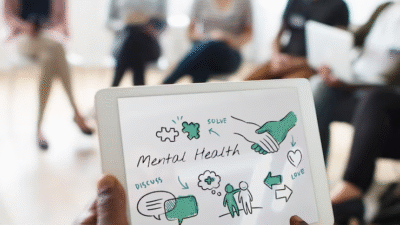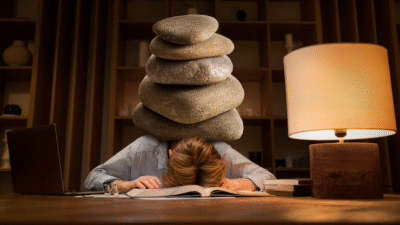
Meta Title: Sleep Better with Anxiety in 2025: Proven Tips for Restful Nights
Meta Description: Discover expert-backed strategies to sleep better with anxiety in 2025. Improve sleep, reduce bedtime anxiety, and enjoy restful nights with these calming tips.
Introduction
If you’re one of the millions struggling with anxiety and sleepless nights, you’re not alone. Anxiety affects our ability to relax, fall asleep, and stay asleep. The good news? With the right strategies, you can sleep better with anxiety, even in today’s fast-paced, tech-driven world. This article dives into the most effective, evidence-based sleep solutions for anxiety in 2025 that promote restful nights and improve your mental health.
Understanding the Link Between Anxiety and Sleep
What Is Anxiety-Related Insomnia?
Anxiety-related insomnia is a condition where excessive worry or nervousness prevents restful sleep. It includes:
- Trouble falling asleep
- Waking up frequently during the night
- Restless, non-restorative sleep
Why Anxiety Disrupts Sleep
When you’re anxious, your brain remains in a state of high alert. This triggers the release of stress hormones like cortisol, making it difficult to wind down. Chronic anxiety can lead to:
- Increased heart rate
- Rapid thoughts
- Muscle tension
These physiological changes interfere with the body’s natural sleep cycles, leading to persistent sleep issues.
Anxiety and Sleep Tips 2025: What’s New?
1. Wearable Sleep Tech
Modern wearables now offer sleep coaching, real-time HRV (heart rate variability) monitoring, and guided breathing exercises tailored to your anxiety levels.
Top Devices:
- Oura Ring
- Fitbit Charge 6
- Apple Watch with Mindfulness App
2. AI-Driven Sleep Apps
Apps like Calm and Headspace now integrate AI to detect nighttime anxiety and recommend custom meditations, sounds, and sleep stories.
Creating a Calming Sleep Routine
1. Stick to a Consistent Sleep Schedule
Go to bed and wake up at the same time every day—even weekends. This helps regulate your circadian rhythm.
2. Power Down Before Bed
Avoid screens at least an hour before bedtime. Blue light suppresses melatonin, a hormone that helps you sleep.
Tip: Use blue light filters or blue-light-blocking glasses.
3. Create a Relaxing Environment
Your bedroom should be your sleep sanctuary. Consider the following:
- Temperature: Keep it between 60–67°F (15–19°C)
- Noise: Use white noise or calming nature sounds
- Lighting: Use blackout curtains or a sleep mask
Mindfulness-Based Strategies

1. Mindful Breathing Techniques
Focus on your breath to calm racing thoughts. Try box breathing:
- Inhale for 4 seconds
- Hold for 4 seconds
- Exhale for 4 seconds
- Hold for 4 seconds
2. Guided Meditation Before Bed
Apps and YouTube channels offer sleep meditations specifically designed for anxiety reduction.
3. Journaling to Clear the Mind
Spend 5–10 minutes journaling before bed to dump your thoughts and reduce nighttime overthinking.
Natural Sleep Aids for Anxiety
1. Herbal Remedies
- Chamomile tea
- Valerian root
- Lavender oil (aromatherapy or topical)
2. Magnesium and L-Theanine
Both supplements are known for their calming effects and support deeper sleep cycles.
Note: Always consult your doctor before taking any supplement.
Sleep Hygiene for Anxious Minds
Dos
- Exercise regularly, but not too close to bedtime
- Get exposure to natural sunlight during the day
- Wind down with a hot shower or bath
Don’ts
- Don’t consume caffeine late in the day
- Don’t check your phone in bed
- Don’t eat large meals right before bedtime
When to Seek Professional Help
If your sleep anxiety persists despite trying these strategies, it might be time to consult:
- A sleep specialist
- A mental health therapist
- A psychiatrist (for medication review)
Real-World Case Study
Name: Sarah, 32, marketing professional Issue: Frequent panic attacks at night, unable to sleep more than 4 hours Solution: Combined a consistent bedtime routine, CBD drops, guided meditation, and therapy Outcome: Improved sleep quality by 70% in 3 months
To further support your journey toward better sleep with anxiety, several trusted resources offer valuable insights and practical strategies. The American Psychological Association (APA) highlights the deep connection between anxiety and sleep disruption, offering evidence-based guidance. Harvard Health provides expert-backed tips on how anxiety interferes with sleep and what you can do to address it.
What’s New in Sleep Science 2025
1. Neurofeedback Devices
Non-invasive headbands that train your brain to calm down using real-time EEG data.
2. Light Therapy for Anxiety-Induced Insomnia
Tailored light exposure therapies using smart bulbs that mimic sunrise and sunset for better hormonal regulation.
Pros & Cons of Natural Remedies vs. Medication
| Factor | Natural Remedies | Medication (e.g., Benzos, SSRIs) |
|---|---|---|
| Side Effects | Minimal | Potential for dependence |
| Effectiveness Speed | Gradual | Rapid |
| Cost | Generally low | Can be high |
| Long-Term Use | Safer for extended use | Needs medical monitoring |
FAQs
Q1: What is the best way to sleep better with anxiety in 2025?
Answer: The best method is a combination of a calming bedtime routine, tech-assisted relaxation tools (like sleep apps), mindfulness techniques, and natural supplements.
Q2: Are sleep aids safe for anxiety-related insomnia?
Answer: Many over-the-counter options and natural remedies are generally safe. However, consult your doctor to avoid interactions or dependency risks.
Q3: Can anxiety cause long-term sleep disorders?
Answer: Yes, chronic anxiety can disrupt sleep cycles and lead to insomnia, hypersomnia, or sleep apnea in some cases.
Q4: How long does it take to fix anxiety-related sleep issues?
Answer: It varies. With consistent habits, most people notice improvement within 2 to 6 weeks.
Q5: What are some calming pre-bed activities?
Answer: Reading, meditating, light stretching, listening to music, and aromatherapy are all effective ways to reduce bedtime anxiety.
Q6: Should I avoid naps if I have trouble sleeping at night?
Answer: Yes, especially if you nap for more than 30 minutes or too close to bedtime.
Conclusion
Sleeping better with anxiety in 2025 is possible with the right combination of modern tools, timeless mindfulness practices, and healthy habits. By understanding your anxiety triggers, improving your sleep environment, and staying consistent with calming routines, restful nights can become your new norm.




